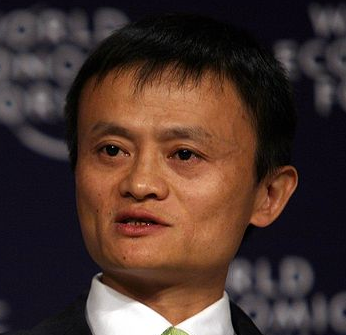Alibaba Group forms partnership with Macau SAR government to drive smart city development

Alibaba Group, announced that it entered into a strategic partnership framework agreement with the Government of Macau Special Administrative Region (Macau), under which Alibaba will support Macau’s transformation into a smart city by using cloud computing technologies in order to bring benefits to both residents and tourists visiting the city.
The chief executive of Macau, Mr Chui Sai On and Alibaba Group’s executive chairman, Jack Ma, witnessed the exchange of the Memoranda of Understanding in Macau. By leveraging the advanced technologies provided by Alibaba Cloud, the cloud computing arm of Alibaba Group, the parties will collaborate in upgrading the IT infrastructure in Macau to foster developments in tourism, transportation, healthcare, governance and talent development.
O Lam, chief of office of the chief executive said: “After setting the goal to turn Macau into a smart city, Macau Government has studied the experience of other cities in developing their own versions of smart cities. After thorough study and research, we have decided to collaborate with Alibaba Group to foster the development of cloud computing and big data technologies.
By leveraging the power of these technologies and connecting resources of different government departments, the project is expected to enhance the model of socio-economic operation in Macau, expediting the city’s transformation into a smart city.”
Simon Hu, senior vice president of Alibaba Group and president of Alibaba Cloud said: “It is an honor for Alibaba to support the Macau Government’s vision for the development of a smart city. Alibaba Cloud’s big data and deep learning technologies have been helping to build ‘city brains’ in China to improve well-being of urban residents.
Leveraging our advanced technology and experience in this customised project, we are confident that the success of Macau’s digital transformation will serve as an example of a truly smart city in the region.”
The partnership is for four years. In the first phase from 2017 to 2019, the collaboration will focus on cloud computing, smart transportation, smart tourism, smart healthcare, and smart city governance, as well as talent development:
- Cloud computing: The parties will collaborate to develop a dedicated smart technology platform with the aim of promoting cloud computing technologies in Macau.
- Smart transportation: The parties will build a smart transportation network for the city to optimise the management of road, water and air traffic, making the most effective use of Macau’s transportation resources.
- Smart tourism: Alibaba will support Macau in its development of smart tourism, leveraging the analysis of visitors and providing target consumer marketing tools. In the future, tourists visiting Macau will enjoy insight-driven guided tours, convenient mobile payments and customised online promotions at the airport, commercial districts, tourist spots, convenience stores and restaurants.
- Smart healthcare: Alibaba will support Macau in enhancing its electronic medical system and assisting healthcare decision-making through the use of online medical information.
- Smart city governance: Alibaba will assist Macau with the development of a centralised cloud-based platform that connects different government departments to enhance the efficiency of the city’s governance.
- Talent development: Alibaba is launching the Alibaba Cloud IT Certificate program and B2B e-commerce training program with local tertiary educational institutions to support the development of professionals in cloud computing and e-commerce, as well as to identify and nurture promising startups and talented entrepreneurs in Macau.
The scope of collaboration is intended to encompass environmental protection, economic forecasting and customs clearance on a later stage.
Alibaba has a proven track record in smart city development which this newly announced collaboration will seek to build on. One example is the Hangzhou City Brain, which was launched in October 2016 based on artificial intelligence and deep learning and reduces traffic congestion by sending out instant traffic alerts and route suggestions to users by real-time prediction of traffic movement. This transportation management system, piloted in Hangzhou’s Xiaoshan District, has increased traffic speed by as much as 11%.
Comment on this article below or via Twitter @IoTGN

